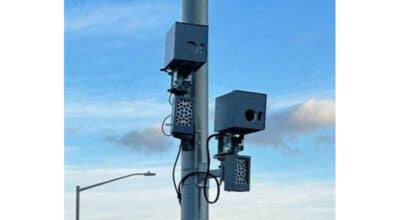Judicial transparency
Published 10:07 am Wednesday, December 21, 2016
[Editor’s note: Through a pre-arranged agreement, the Suffolk News-Herald had agreed to cover the hearing and share its stories with The Tidewater News.]
Six of seven felony charges against Virginia Delegate Rick Morris were dismissed in Suffolk’s juvenile and domestic relations court on Thursday, and all misdemeanor counts against him were withdrawn following a seven-hour probable cause hearing.
What caused Judge Robert S. Brewbaker to dismiss six felony counts? What convinced him to certify the sole remaining felony count, stemming from an alleged incident of child cruelty, to the grand jury? What reason did special prosecutor Shukita Massey of Hampton have for declining to prosecute the misdemeanor charges? Why did the special prosecutor decline to prosecute three misdemeanor charges against Morris’ wife, Kathryn Morris?
We don’t know.
The Suffolk News-Herald, like all Hampton Roads media representatives that showed up for the hearing, was barred from the courtroom by a court order from Judge Brewbaker that cited Virginia code section 19.2-266, which primarily addresses courtroom photography and television broadcasting of court cases in the commonwealth.
Brewbaker was unmoved by the arguments of a Virginian-Pilot reporter, who was briefly allowed into the courtroom to state the media’s case for transparency, especially considering Delegate Morris’ position as an elected official, noting that he had a special obligation to protect the minor who was to give the key testimony in the hearing.
We have the utmost respect for Judge Brewbaker, but we must join our media colleagues, some of whom have filed an appeal in an effort to have the courtroom transcript unsealed, in objecting to the courtroom closure.
Virginia law requires juvenile court to be open to the public when the defendant is an adult and charged with a felony. A judge can close the courtroom, but he must specify his reasons for doing so, and the law suggests that the closure should be minimally damaging to the commonwealth’s tradition of courtroom transparency.
Further complicating matters is the judge’s assertion to a media attorney that the courtroom was open to the public, but not to the press. Brewbaker noted that one person in the courtroom was unaffiliated with either the media or the involved parties.
But reporters are the public. They are the eyes and ears of the public, entrusted with the task, in this case, of watching and reporting on the proceedings of a court case that involves a public official accused — possibly falsely, though that remains for the justice system to decide — of a heinous offense.
Brewbaker’s decision to blindfold the media from the operations of his courtroom left the public to wonder about how justice unfolded there.
It hurt the commonwealth, which would have benefitted from transparency in such a high-profile case, and it hurt the defendant, Morris, who would have benefitted from public knowledge of how his charges came to be dismissed.
The appeal of Brewbaker’s decision will be heard in Suffolk Circuit Court. We hope that court recognizes the need for judicial transparency, especially when it comes to public officials.




